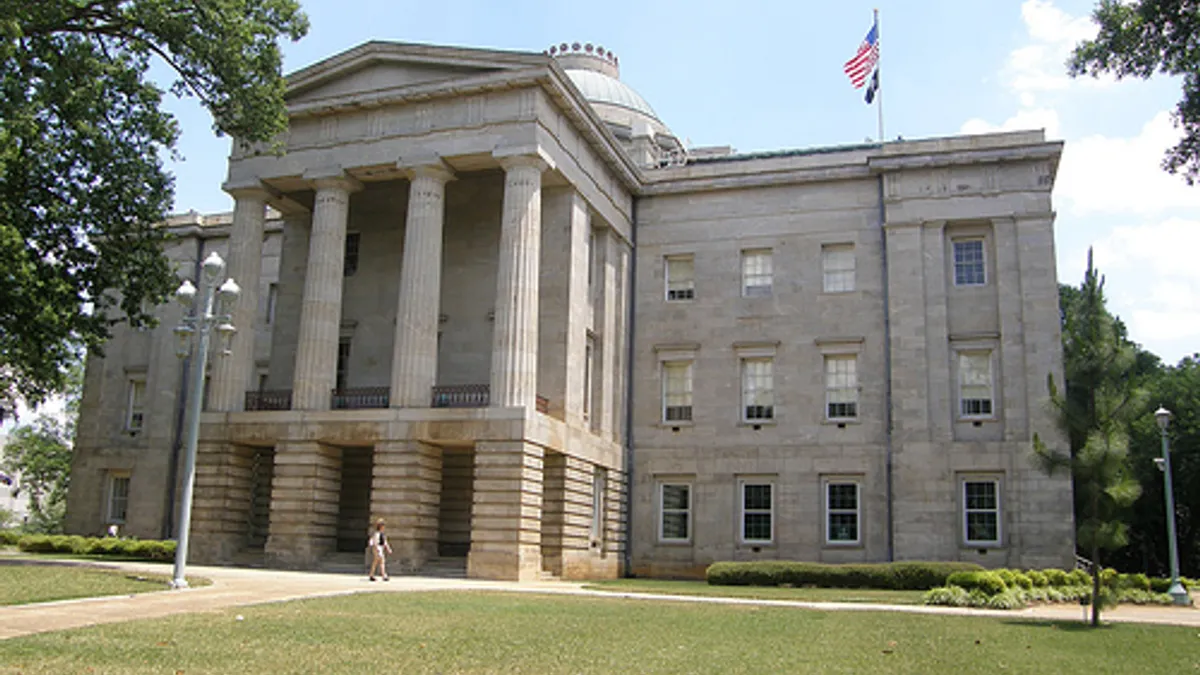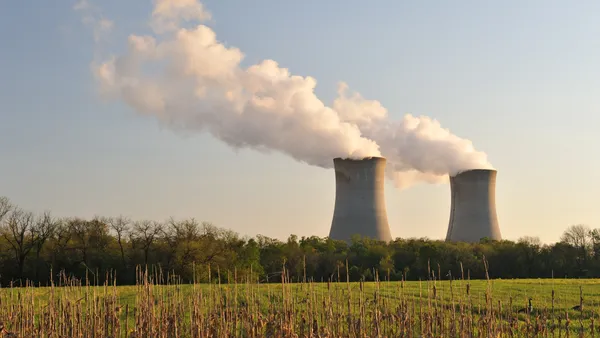Dive Brief:
- North Carolina lawmakers reached a compromise in the early morning hours Friday, approving a bill to modernize the state's solar rules that also includes an 18-month moratorium on wind energy development.
- The original bill, HB 589, came out of the House as the product of stakeholder negotiations that took almost a year. But in the Senate, Republican Sen. Harry Brown tacked on the wind moratorium, which he says will allow time to study the facilities' impact on military installations.
- The measure, which creates a competitive bidding process for solar developers, now heads to Gov. Roy Cooper (D) to sign or veto. Cooper supported the original bill, but his views on the compromise provisions remain unclear.
Dive Insight:
Even if Cooper vetoes the bill, strong support in the legislature could mean he could be overridden. The Raleigh News & Observer reports the compromise passed the Senate 36-4 and the House 66-41.
What had begun as a collaborative process to overhaul solar rules in North Carolina evolved into a debate over the siting impacts of wind energy. Sen. Harry Brown (R) introduced the wind moratorium amendment out of concern that projects could put the state's military facilities at risk during future base closing considerations.
Brown told local news outlet WRAL that wind power facilities represent a threat to bases with aviation operations that isn't being talked about.
"People don't realize – the generals will tell me, off record – how important this is." the Senate Majority Leader said. "It's the biggest threat to their bases of anything out there at this point."
Two projects currently under development, the Timbermill Wind and Alligator River facilities, may be impacted. They are expected to bring about $1 billion in investment to the state.
Some lawmakers worried that the wind moratorium would kill those projects and push developers to site projects in other states, but supporters said the bill would not stop environmental officials from reviewing the pending projects while the hold is in place.
The bill develops a competitive bidding process for solar developers and puts in place a solar leasing program allowing customers to work with private parties. It would also reform the state's interpretation of the Public Utility Regulatory Policy Act, which has helped North Carolina grow to the nation's second-largest solar market.
Duke Energy spokesman Randy Wheeless previously said the utility supports "what came out of the stakeholder process,” referring to lengthy negotiations that went into developing the bill before the wind moratorium was added.














